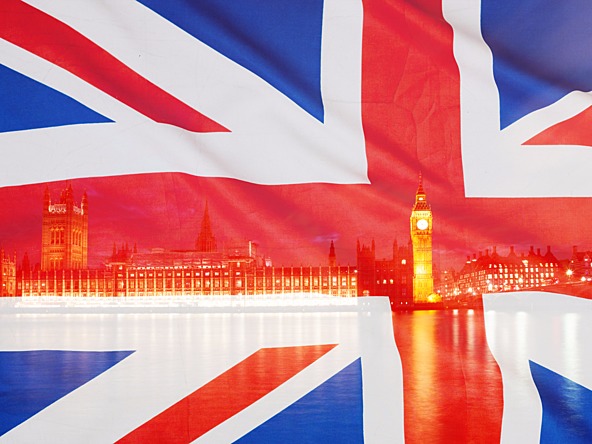A global impact?

Last week, parliament heard a debate chaired by Tulip Siddiq MP and run by The Debating Group focusing on the impact of the government’s ‘global Britain’ policies on advertising and marketing. The debate proposition was titled The government’s global Britain ambitions currently far outstrip the abilities of the UK’s talent pool, and the debate centred on how advertising was playing its role in the UK’s post-Brexit future and trade.
Speaking against the motion, Peter Markey, chief marketing officer at Boots, said that while there was undoubtedly a lot of talented people working in marketing, more investment in skills was urgently required.
“The talent we have got deserves recognition and praise for the role it plays in driving business growth,” he explained.
“The industry is doing amazing work, but the question at the heart of this debate is not whether we have talented marketers and do good work, but whether talent is keeping pace with the industry and are we investing enough for the opportunities and challenges that lie ahead.”
Markey said skills “have been falling behind”, with core digital skills declining. He added that many marketing directors had a worse understanding of e-commerce, digital, paid search and other skills than staff who were one to two years into their marketing careers. There was a similar gap when it came to knowledge of sustainability, adding that staff “are feeling around in the dark through a really key topic without the right skills or training”.
Markey said diversity was still an issue, with only 12.5% of employees coming from a working-class background, despite 14% being upper middle class and 42% middle class. Upper-class and middle-class social groups were also more likely to hold leadership positions.
“If we truly want to be a global Britain, haven’t we got to represent Britain?” said Markey. “Haven’t we got to represent the country and customers we serve? With only the elite leading, what is happening to the talent coming through that truly represents everything that is amazing about the country we live in?”
Many people don’t believe marketing is appreciated within their organisation or properly understood, Markey said, and “training and development is not keeping pace with the fast-moving nature of the business world”, with a risk that marketing is seen as a “cost, not an investment”.
“This can be fixable. With the right investment, and with the right focus in the right areas, we can make marketing a bigger powerhouse,” Markey added.
Kate Burnett, general manager at the DMA Talent, part of the Data & Marketing Association, said that while there is talent and a need for optimism, “this is about the volume and about the future of the industry”.
She said there is a need for “more marketing and more marketers” to help small to medium enterprises recover from the Covid-19 pandemic, and a stronger partnership between education, business and government to help with reskilling and upskilling.
Diversity has to be boosted, Burnett maintained, with neurodiverse people an example of an untapped area for future recruits. “That’s just one example of different groups that would enhance this industry if we were prepared to train them and plan a little bit better.”
Burnett also banged the drum for apprenticeships. “Apprenticeships are potentially our biggest opportunity as an industry to both diversify our talent pool and to increase it too,” she explained. “It would put our industry in reach of so many different types of people, and our apprenticeship strategy should be sat proudly among our reskilling and graduate training programmes, which is currently not the case.
“We can’t hope to reach the heady heights of ‘global Britain’ if we can’t invest in the next generation of marketers and inspire them to join our industry.”
A global Britain
On the other side of the debate, Michael Moszynski, chief executive officer at London Advertising, said the UK has taken a leading role in responding to global challenges, and creativity is at its heart.
He argued there is great talent in the UK’s advertising sector, with advertising seeing 300% growth in the last decade and becoming the third biggest export for the UK. Strong technology and finance sectors can combine with creativity, he explained, to help the advertising economy.
“The advertising industry should seek to tap into this amazing creative talent we have,” Moszynski added. “We are not just punching above our weight – we are the heavyweight champions of the world.”
Aisling Conlon, international trade director at the Advertising Association, explained that the UK is one of the world’s best performing advertising sectors. She said that the UK is in a “better position to lead the digital revolution than any other nation”, with international trade at £11.7bn in 2020, the same as pre-pandemic 2019 for advertising and market research.
The US buys £1.2bn in advertising services from the UK, followed by Spain and Germany, Conlon added, and the UK is the largest advertising market in Europe and third in the world, behind China and the UK. The UK has a £5bn trade surplus for advertising, the biggest in Europe. “These figures do not tell the story of an industry that is being held back,” Conlon maintained. “It is a story of global success, creativity and opportunity.”
Conlon concluded that the UK “is a magnet for international talent”, adding that “with its pool of diverse skills, global talent and world-class creative capabilities, the UK advertising market is not just your gateway to Britain – it is your gateway to everywhere”.

We hope you enjoyed this article.
Research Live is published by MRS.
The Market Research Society (MRS) exists to promote and protect the research sector, showcasing how research delivers impact for businesses and government.
Members of MRS enjoy many benefits including tailoured policy guidance, discounts on training and conferences, and access to member-only content.
For example, there's an archive of winning case studies from over a decade of MRS Awards.
Find out more about the benefits of joining MRS here.














0 Comments